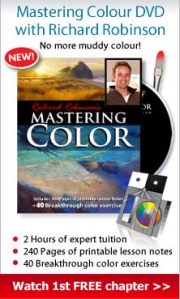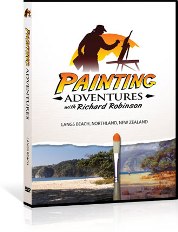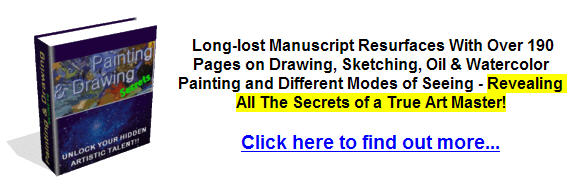Frequently Asked Questions About Oil Painting(Scroll down to see the full list of lessons in this section)
There are some questions that come up time and time again when it comes to new oil painters and oil painting lessons. Here are some of the answers. 1. Is oil painting an expensive hobby? Relatively speaking, oil painting is a bit expensive in terms of initial investment. Building your equipment kit for oil painting can be costly, because quality paints and brushes don’t come that cheaply. But if you do decide to invest in quality materials, you will be spending a lot less in the long run. Also, the tubes of paint may seem small, but they go a very, very long way. Going with cheaper “student grade” paints is fine at first as well; they’re of good enough quality for beginners. 2. Is oil painting more difficult than watercolor? In terms of the act of painting, one type of painting isn’t easier to learn than the other—they’re just different. Oil painting may be considered more difficult than watercolor simply because of the amount of materials and additional procedures you need to know. With watercolors, you can get by with just paints and paper, but with oil, you need mediums and paint thinners which need to be used in specific ways, and cleaning everything up is way more involved. Oil painting has a bit of an advantage over watercolors for the ease of removing mistakes though—since oils involve a lot of layers and are applied thickly, you can usually scrape paints off and paint over them with relative ease. 3. What kind of brushes should I use? When you see the prices for paintbrushes, you might be tempted to think that they’re all pretty much the same and go for the cheaper variety. This isn’t recommended for oil painting. First of all, cheap brushes are more likely to shed bristles. Because oil paintings are usually thick and textured, it’s very easy for loose bristles to get embedded in your piece. Secondly, cheap brushes can be made out of synthetic materials, which are not appropriate for oil painting. All oil brushes should be made of natural materials, preferably hog’s hair. Read this article on choosing the correct paintbrushes for different aspects of painting. 4. Do paintings really take that long to dry? Yes. The actual amount of time it takes is highly variable; it depends on the type of paint (artist’s grade takes longer than student grade, for example), how thickly you applied it (obviously thicker layers will dry more slowly), and where it’s drying (a warm sunny room is better for a painting than somewhere dark and wet). A painting can take months or even years to dry. 5. Are the materials used really bad for me? Turpentine, the traditional paint thinner used by oil painters is highly toxic and should only be used in well-ventilated areas. Paints themselves can also be toxic depending on what they’re made from. Lead white, for example, has lead in it, so most artists no longer use it. If you handle your materials with care and work in well-ventilated spaces, you should be fine. 6. Are there alternatives to turpentine? Yes. You can use mineral spirits or odorless mineral spirits, which are less toxic. There are also citrus-based products available. Generally, they don’t work as well as turpentine, which is why turpentine is still the most popular option. Frequently Asked Questions About Oil Painting:
Oil Painting FAQ | Common Problems in Oil Painting | |
|


Master the Colours DVD...

|
Although every attempt has been made to make information as accurate as possible, we are not responsible for any errors that may appear.
© Copyright 2015, OilPaintingTechniquesLessons.com. All Rights Reserved.






